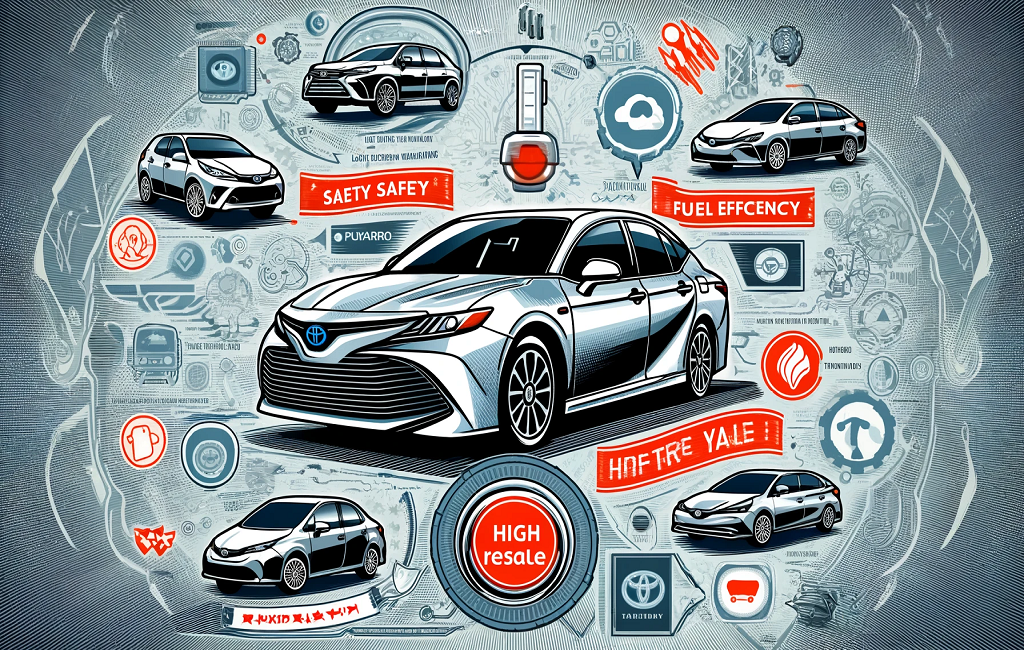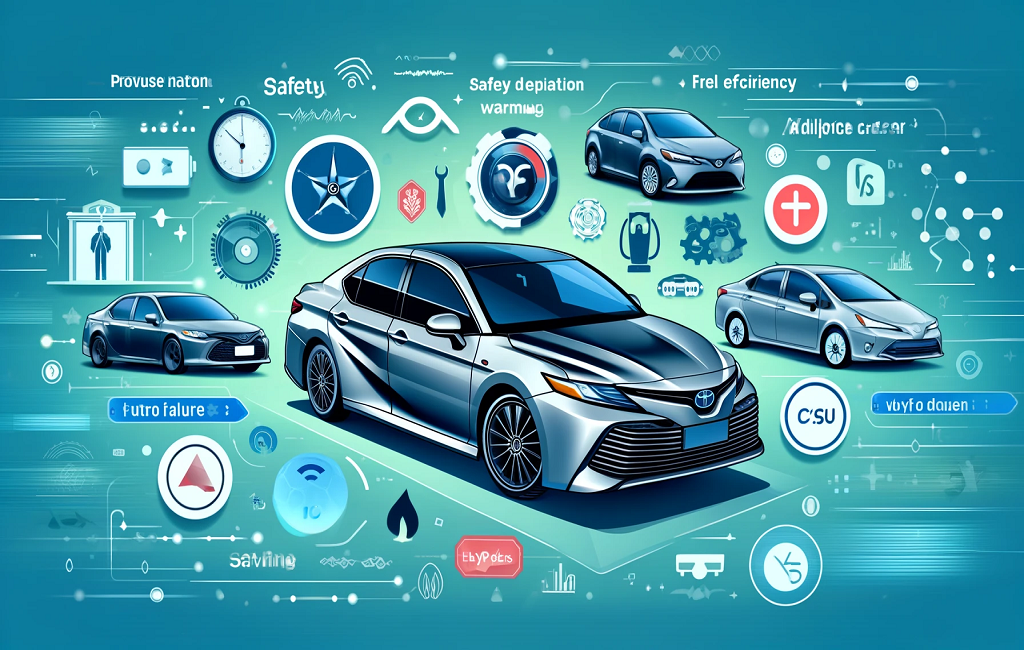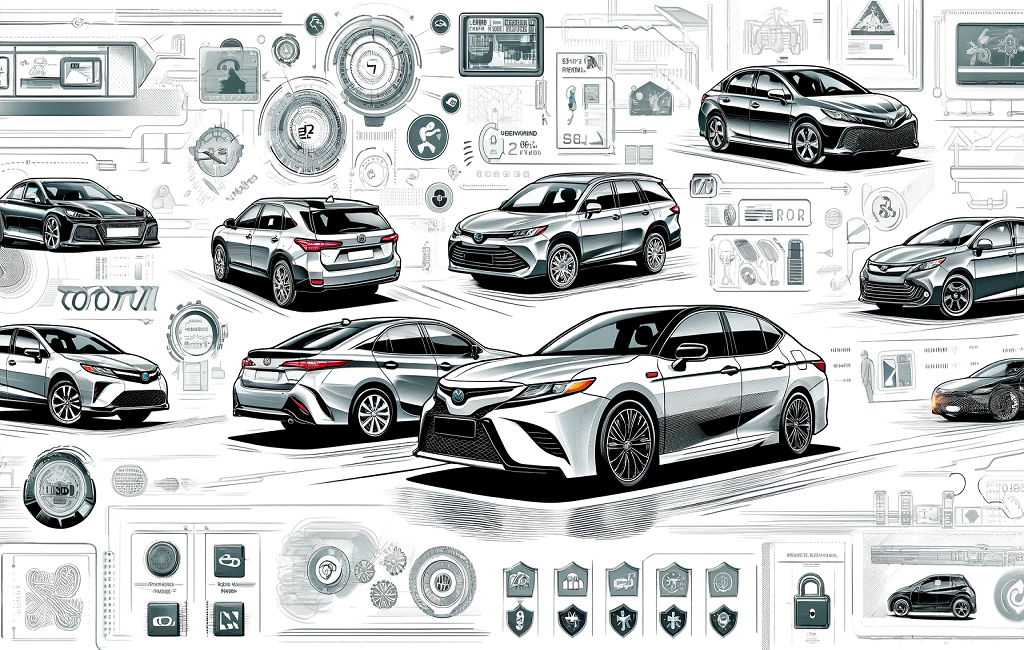
Toyota is a pillar of automotive excellence, recognized globally for its commitment to quality, sustainability, and innovation. With its headquarters in Toyota City, Japan, the company has woven a rich tapestry of reliability and forward-thinking into the fabric of its brand identity. This article delves deep into the multifaceted nature of Toyota vehicles, exploring the advantages and challenges they present to today’s discerning consumer.
As one of the largest automobile manufacturers in the world, Toyota has continually set benchmarks in vehicle safety, fuel efficiency, and durability. The brand’s vehicles are praised for their advanced safety features, remarkable fuel economy, and robust resale value—qualities that make them a top choice for families and professionals alike. However, even the most celebrated brands face their sets of challenges. From design conservatism to integrating cutting-edge technologies, Toyota’s journey is one of balancing tradition with innovation.
This comprehensive analysis will explore the 20 most significant pros and cons of owning a Toyota. From its storied commitment to safety and the high demand for its models to some critiques about performance limitations and luxury offerings, this article aims to provide a balanced view that helps potential buyers make informed decisions. Furthermore, we will share unique personal insights into Toyota’s approach to vehicle manufacturing and market strategy, ensuring readers receive a well-rounded perspective of what it means to own a Toyota in today’s fast-evolving automotive landscape.

Table of Contents
Pros of Toyota
Advanced Safety Features
Toyota has long been at the forefront of automotive safety, integrating advanced features that set industry standards. Models like the Toyota Camry and Corolla come equipped with Toyota Safety Sense, a suite of safety technologies including automatic emergency braking, lane departure alerts, and adaptive cruise control. This proactive approach to safety is a significant selling point, as it demonstrates Toyota’s commitment to protecting its drivers and passengers.
Fuel Efficiency
Fuel economy is another cornerstone of Toyota’s reputation. The brand offers a range of highly fuel-efficient vehicles, such as the Toyota Prius. It is renowned for its hybrid technology that blends gasoline and electric power to maximize mileage and minimize emissions. Toyota’s focus on fuel efficiency is environmentally friendly and cost-effective, providing consumers with long-term savings on fuel expenses.
High Resale Value
Toyota vehicles are known for their durability, which contributes to their high resale value. Models like the Toyota Tacoma and Highlander maintain much of their value even after several years of ownership. This robust resale value is attributed to Toyota’s quality craftsmanship, reliability, and the ongoing demand for its used vehicles.
Driving Experience
Driving a Toyota is characterized by comfort, stability, and user-friendly technology. The brand’s vehicles are designed with the driver’s experience in mind, offering smooth rides, ergonomic interiors, and intuitive dashboard layouts. Whether a daily commute or a long road trip, Toyota strives to ensure that every journey is pleasant.
Reliability and Durability
Toyota’s reliability sets it apart most distinctly in the automotive industry. With a reputation built on vehicles that often surpass 300,000 miles with proper maintenance, Toyota makes cars built to last. Numerous consumer surveys and industry reports support this reliability, frequently placing Toyota at the top regarding fewer repair needs over time and lower maintenance costs.
These pros highlight Toyota’s commitment to quality, sustainability, and customer satisfaction. They reflect a brand ethos that prioritizes the functional aspects of vehicle ownership and the economic and experiential benefits that can enhance customers’ lives.
Cons of Toyota
Cost Considerations
While Toyota vehicles are renowned for their long-term savings and value, the initial purchase price is often higher than some competitors. This is particularly true for their hybrid and fully loaded models. The premium for Toyota’s reliability and advanced features may make some models slightly out of reach for budget-conscious buyers, who may find more affordable options with other brands offering competitive features.
Design Conservatism
Toyota has sometimes been critiqued for its conservative approach to vehicle design. Unlike brands that frequently push the envelope in aesthetics, Toyota tends to stick with more traditional designs that may not appeal to those seeking a more modern or sporty look. This conservatism can be a drawback for consumers who prioritize style and innovation in car design over traditional functionality and reliability.
Performance Limitations
Regarding high-performance vehicles, Toyota often lags behind brands focusing on dynamic driving experiences and powerful engines. Although models like the Toyota Supra aim to address this, the general lineup must include the high-performance options offered by manufacturers specializing in sportier vehicles. This can be a con for driving enthusiasts who prefer a car with more agility and speed.
Limited High-End Luxury Options
Compared to brands that specialize in luxury, such as Mercedes-Benz or BMW, Toyota’s luxury offerings through its Lexus brand may still need to catch up with some luxury buyers. While Lexus competes well in the luxury market, the core Toyota brand offers fewer high-end features, focusing more on affordability and practicality, which may not satisfy those seeking a premium luxury experience.
Technology Integration
Although Toyota is innovative in many respects, integrating the latest and most advanced technologies is only sometimes as rapid or extensive as seen in competitors like Tesla or Audi. Toyota’s infotainment systems and connectivity features have evolved slower, disadvantaging tech-savvy consumers who prioritize cutting-edge technology in their vehicles.
These cons do not detract from Toyota’s overall quality and value but are important considerations for potential buyers. Each point reflects areas where the brand could improve or adapt dynamically to changing consumer preferences.

Personal Opinion and Insights
As a long-time observer and analyst of the automotive industry, I sincerely appreciate Toyota’s strategic approach to vehicle manufacturing. Toyota has consistently prioritized reliability, safety, and efficiency, which are critical factors for any vehicle owner. However, my experiences and observations highlight areas where Toyota could further enhance its appeal to a broader market.
From a safety and efficiency standpoint, Toyota’s dedication is commendable. The integration of Toyota Safety Sense across its model lineup demonstrates a proactive approach to making advanced safety features accessible to more consumers, not just those who can afford high-end models. This democratization of safety technology is a significant step forward in automotive safety and is a practice that other manufacturers could well emulate.
Regarding fuel efficiency, Toyota has pioneered hybrid technology, particularly with the Toyota Prius. The vehicle set benchmarks for hybrid technology and helped popularize it among mainstream consumers. This move has had lasting impacts on the industry and the environment, pushing more manufacturers to consider hybrid and electric options sooner than they might have otherwise.
However, Toyota’s conservative approach to design and technology integration often leaves me wanting more. In an era where aesthetics and high-tech features significantly influence consumer choices, Toyota’s traditionalist philosophy might limit appeal, especially among younger demographics who value innovation and style. While reliability is crucial, the emotional appeal of driving a stylish, technologically advanced car cannot be understated.
Moreover, while Toyota’s vehicles are undeniably reliable, this reputation for durability sometimes comes at the expense of driving excitement. The driving experience in many Toyota models tends to be safe and predictable, which is excellent for most consumers but not necessarily for those who enjoy a more engaging driving experience. The brand could benefit from injecting more dynamism into its vehicles without compromising the reliability that customers expect.
In conclusion, while Toyota excels in many important areas to consumers, embracing bold designs and advanced technologies could help the brand capture a more significant market segment that craves innovation alongside reliability. By balancing these elements, Toyota could enhance its strong market position and appeal to a broader audience.
FAQ Section
What are the positives and negatives of Toyota?
Positives: Toyota vehicles are renowned for their advanced safety features, exceptional fuel efficiency, high resale value, overall reliability, and durability. These attributes make Toyota a trusted brand among consumers seeking practical and long-term value in vehicle purchases. Negatives: On the downside, Toyota’s conservative design may not appeal to everyone, especially those seeking modern aesthetics. The initial cost of some models can be high, performance options are limited compared to brands focusing on sportier vehicles, and integrating the latest technologies is slower than some competitors.
What are the advantages of Toyota cars?
Toyota cars’ primary advantages include their industry-leading safety features, superior fuel efficiency, strong resale values, and unparalleled reliability. These advantages ensure that Toyota cars are a safe, economical, and durable choice for families and individuals alike.
What is so good about Toyota?
Toyota excels in creating vehicles that offer long-term reliability and safety. The brand’s commitment to these areas is evident in its widespread adoption of comprehensive safety technologies and the longevity of its vehicles. Additionally, Toyota’s focus on fuel efficiency helps owners save on operational costs, making them suitable for the wallet and the environment.
Why do people prefer Toyota?
People prefer Toyota for several reasons:
- Reliability: Perhaps the biggest draw is Toyota’s reputation for building dependable vehicles that last many years with minimal issues.
- Resale Value: Toyota cars maintain their value better than many other brands, making them a wise investment.
- Safety: The brand’s commitment to safety with features like Toyota Safety Sense appeals to those who prioritize the well-being of their passengers.
- Economic Efficiency: Toyota’s fuel-efficient and hybrid technology innovations offer cost savings and environmental benefits, appealing to eco-conscious drivers.
These FAQs offer concise, encyclopedic answers to some common inquiries about Toyota. They reflect the brand’s strengths and areas for improvement and provide potential buyers with clear, straightforward information.
Conclusion
Toyota is a beacon of reliability, safety, and efficiency in the automotive industry. The brand’s dedication to advanced safety features, such as Toyota Safety Sense, sets it apart as a leader in vehicle safety technology. Additionally, Toyota’s focus on fuel efficiency through pioneering hybrid models like the Prius demonstrates a commitment to sustainability and long-term cost savings for consumers. The high resale value of Toyota vehicles further underscores the brand’s reputation for durability and quality craftsmanship.
However, Toyota has areas for improvement. The brand’s conservative design philosophy may not appeal to all consumers, particularly those seeking modern or sporty aesthetics. Furthermore, while Toyota excels in reliability and safety, its performance offerings and luxury features are often outpaced by competitors who prioritize these aspects. Though solid, integration of cutting-edge technology sometimes needs to catch up to industry leaders, which can be a drawback for tech-savvy buyers.
Toyota’s strategic focus on core strengths like safety, efficiency, and reliability has solidified its position in the market, making it a preferred choice for many consumers. However, embracing more dynamic designs and faster tech integration could broaden its appeal, attracting a wider demographic and enhancing its competitive edge.
In summary, Toyota remains a top choice for those prioritizing long-term value, safety, and efficiency in their vehicles. By addressing its conservatism in design and technology integration, Toyota has the potential to attract even more loyal customers and maintain its esteemed position in the automotive world. Whether you are a family looking for a reliable car or an eco-conscious driver seeking fuel efficiency, Toyota offers a range of vehicles that meet various needs with remarkable consistency and quality.

